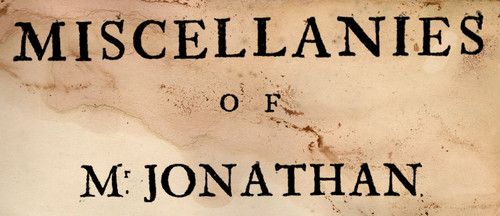[The title, cleverly, refers to clarinets in an orchestra.]
***
Debrett had materialized in Mrs. Basset's hand, apparently of its own volition.
***
She had probably been going to bed for the last hour, and she might continue to brush her hair for another ten minutes, merely because it was too much trouble to stop.
***
“We’ll remember, won’t we, girls?” she cried archly—an exclamation that produced a shout of surprised laughter from her fellows, who would as soon have expected to be called “girls” by the jubilee statue of Queen Victoria in the Market Square.
***
"This man Ventry," said the sergeant solemnly, "is no better than a satire, if you ask me."
[Google confirms that this is a novel thing to say! Google proper brings up no hits for "no better than a satire," and even Google Books shows only three results, all of which are false positives along the lines of "[something--NOT someone--was] no better than a satire [[upon/of something]]." And I'm not exactly sure what the sergeant means by it. Ventry is a notorious womanizer, so the implication may be that his real-life behavior corresponds to the popular idea of the "low morals" on display in satirical plays. But I would like to think that the sergeant merely means that Ventry is so flagrant in his behavior that he's practically a parody of his type--and, I note, this interpretation might be supported by the template of those false positives above, if the unuttered remainder of the sergeant's thought is something like "of himself." Oh, but I didn't mean to neglect another interpretation--the first one that crossed my mind, in fact--in which the implication is that satirical plays are of low quality (artistically, not "morally"), and Ventry is as shoddy as a person as a satire is as a play.]
***
"When I was a boy," observed the Chief Constable, "I was given a damned dull book to read.... It was /Madam How and Lady Why/."
[Yes, it's real! http://www.gutenberg.org/files/1697/1697-h/1697-h.htm]



